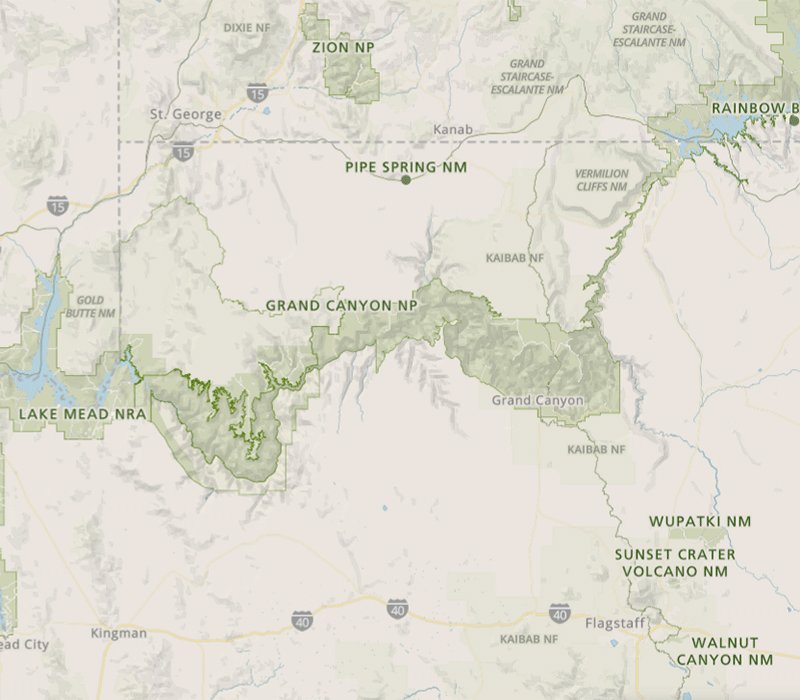
USGS Investigators: Nick Paretti , Kim Beisner
NPS Investigators: Hannah Chambless
| 2025 | 2026 |
|---|---|
| $75,000 | $75,000 |
NPS Park: Grand Canyon NP
USGS Center: New Mexico Water Science Center Arizona Water Science Center
States: AZ
The recent findings of contaminants of emerging concern (CECs) in South Rim springs related to the South Rim Wastewater Treatment Plant (SRWTP) and discovery of elevated nitrates, sulfate, and E. coli in 2016 below the North Rim Wastewater Treatment Plant (NRWTP) outfall have raised concerns about the similar NRWTP operations and the potential for CECs to affect North Rim water resources.
Additional water quality concerns have been ongoing regarding the sources of elevated E.coli measured at Roaring Springs, the primary GRCA drinking water source, in 2023. To date, no samples have been collected for the analysis of indicators specific to wastewater influence, such as PFAS, pharmaceuticals, and artificial sweeteners, nor has there been an effort to identify sources of potential pathogenic organisms from fecal contaminants in sensitive spring and stream ecosystems in the Bright Angel Creek watershed. The ongoing and future North Rim water system improvements and new drinking water intake in Bright Angel Creek will benefit from having current and more comprehensive water quality information specific to these issues.
The objectives of this study are to conduct an assessment of wastewater related CECs in the water resources (surface and groundwater) along the North Rim of the Grand Canyon and potentially identify sources of fecal contaminants and pathogens using microbial source tracking techniques. Objectives also include determining the spatial extent (fate and transport) and measuring the seasonal variability of the contaminants identified. This involves sampling potential sources (wastewater treatment plant) as well as source material (human and animal waste), and a number of surface waters, springs, and wells downstream of these contaminant sources.
